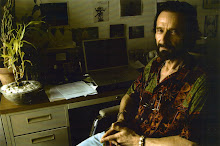If you wish to live well, practice dying. Death and dying are universal human experiences. All that lives is transitory and will depart this life including our loved ones as well as ourselves.
“Encountering Life’s Endings,” my recently published book, encompasses practical, psychological, philosophical, cultural and spiritual aspects of death and dying viewed through the prism of the passing of my mother (94), father (89), brothers Al (69), Joe (46), Eddie (44), numerous friends and colleagues, as well as the highly acclaimed course on the subject of life’s endings that I teach. (In the Columbia College Chicago student grapevine, the rap on my course is: “You must take it, for it will change your life.”)
Interspersed throughout the book are the thoughts and insights of leading figures in the field of thanatology as well as diverse and illuminating teachings by eastern and western thinkers and spiritual teachers, ranging from Stanley Keleman to Thich Nhat Hanh. Readers are also provided with meditations and visualizations that serve to lessen the pain and suffering associated with death and dying, thereby enhancing the possibility of experiencing the last stages of our lives as a final gift to self and others.
Other kinds of life’s endings are also faced and dealt with in my book. For example, love’s passing; allowing parts of ourselves that serve to deaden our lives to “die” in order to live life more fully; birth as a form of dying to allow life to emerge; the casting off of normality to attain sanity; and living life as a stairway to heaven.
Written largely in the form of a memoir, the telling of life stories, hearts will open, emitting compassion for all sentient beings, and minds engaged, resulting in the deepening of how we think about, approach and experience the ebb and flow of our lives. And in the end, when all is said and done, you will be left with a reaffirmation of life.
